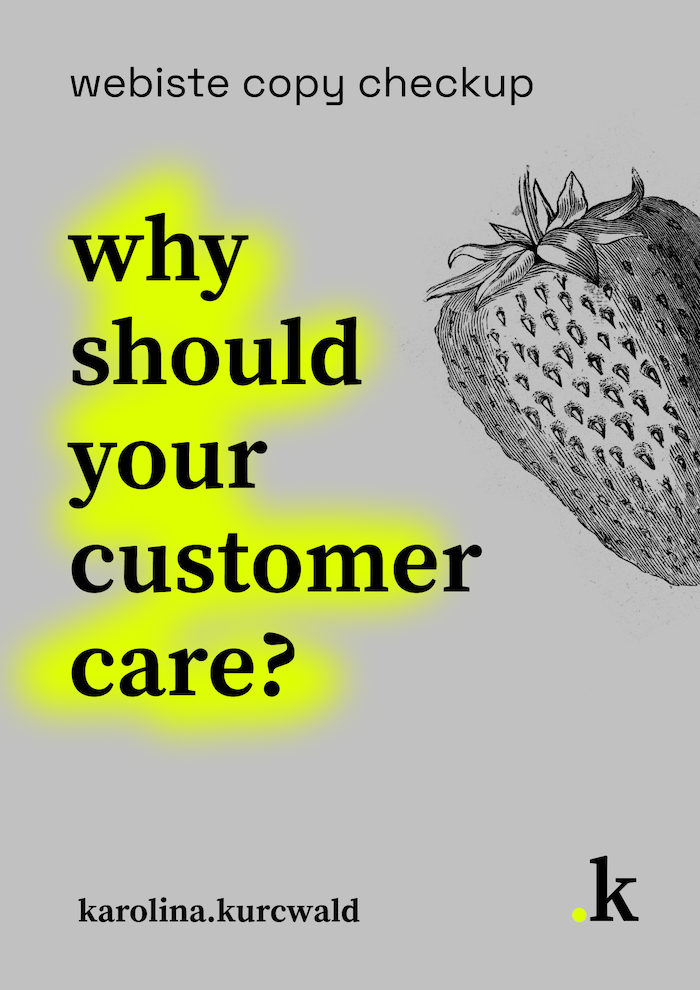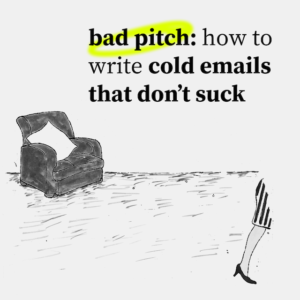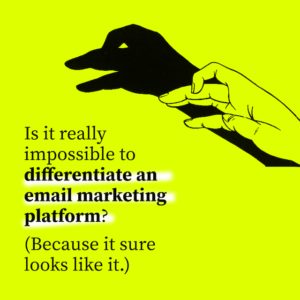

Everybody writes. It’s one of the essential skills you learn at school.
But not everyone can write marketing and sales copy. Well, not the kind that does what it’s supposed to do: sell, build a brand, convince people to sign up or upgrade their account. Of course I would tell you that – I’m a copywriter myself. But that’s how I know what it takes to write stuff that works.
Writing is a little bit like speaking
Actually, a lot like it.
Most of us speak. But not everyone could deliver a compelling, electrifying speech in front of a large audience. You know, one that gives you goosebumps and makes you nod in silent approval.

Writing’s the same.
And yet for some reason, a lot of people I’ve met – business founders, entrepreneurs, heck, even marketers – have thought hiring someone to write their copy is unnecessary. An extra cost in their marketing budget. Better avoided, if possible.
I’ve come to think this comes from not really knowing what a copywriter can do for a business.
A copywriter is not just someone who has “a way with words”
(Although years ago, I might have thought that myself.)
Copywriting takes much more than being a good writer (although it’s a great foundation. I think writing is the toughest skill to learn of all the things a copywriter needs to learn. Well, maybe next to empathy.)
Here’s what else it takes:
Learning marketing and sales
Understanding the entire customer journey. Knowing how to research audiences and create the right messaging at different stages of their journey (or the funnel, or whatever next we’re calling it.) With different goals that call for different measures and tactics.
Knowing how different marketing elements across that journey interact to create a working whole.
Learning about consumer psychology
Understanding human behavior and how words affect it. Learning the principles of persuasion and how to respond to people’s objections.
Learning about what people want, what they hope for, what they’re afraid of, what they dream about. How they might feel when they come to your website. And how to address all of that with your copy.
Empathy
(They say you can actually practice it.) Being able to get inside your prospect’s head and imagine what they might be going through.
Empathy is key if you want to write stuff that resonates with your audience, and not just show off your writing skills (however great they might be.)
And yes, being good at writing
But much more than just clever words and sentences that read nice. Or knowing punctuation rules and relevant stylebooks. But also knowing the principles of good storytelling. How to hook readers with that first sentence. And keep their attention right until the last line.
Being able to adjust the writing to the medium and the audience. And go beyond the rules you were taught at school (feel free to count how many I’ve broken in this post alone.)
And then connecting the dots to use the right words that push the right buttons at the right time, in the right medium, and with the right audience. To achieve the right goal.
The list above is entirely inconclusive. But I think you get the point.
It’s like with any other field of expertise. The more you know about it, the more you realize how much there’s still left to learn.
That’s why, if you’re not into marketing or sales at all, you might think copywriting is just filling up space on a website with words (to neatly fit the design, of course.) Anyone could do it.
And they probably can. You just won’t get the results. Which might make you even more convinced of the fact it’s not worth paying a copywriter if it doesn’t work. And I don’t blame you.
Because it’s definitely *not* worth paying for something that doesn’t work.

Now let’s go back to talking
What do you use to convince people to do something for you? To show them you understand them? To get their attention? To show appreciation? To comfort them? To entertain them? To intrigue them?
Yep, you use words. Maybe not all of the time (you could buy them flowers. Or play a song. Or just give them a hug.) But A LOT of the time.
Words on your website are what draws people in and makes them think “yeah, that’s it, they get me!” Words in your emails are what makes them want to hit that “buy now button” or go back to cart. Words on your landing page are what makes people want to download that ebook (the ebook that – surprise – has words in it), sign up for your webinar or course, get an account with your SaaS platform.
They’re how you show people you get them, and that you can help. They’re how you make a connection.
You talk to them. (Just as I’m talking to you now. Because it’s definitely not me simply typing away at my keyboard in the middle of the night, eyes stinging from too much screen time.)
Now think about what that means for your business
It might mean a strong brand that stands out among similar products or services. More leads. More customers. More clicks on your ads. More time spent on your blog pages. More email opens. Higher conversions. Lower bounce rates. Fewer spam complaints.
More loyal customers. People who keep buying from you, even if there are cheaper alternatives. Because they feel a connection. (For this one, let’s assume you also deliver on your promise with a great product or service.)
Can you really afford giving up on all of that, because you think “it’s just words, anyone can write them?”
I’ll leave you with that. That’s your call.
And that’s what copywriters are for
Yeah, all of that. Not writing words. But writing the right words. So your business can move on and do better.
You know it can.
Got time to read more?

Download my website copy checkup and see if the copy on your website talks about what really matters to your customers.
see if they care →


